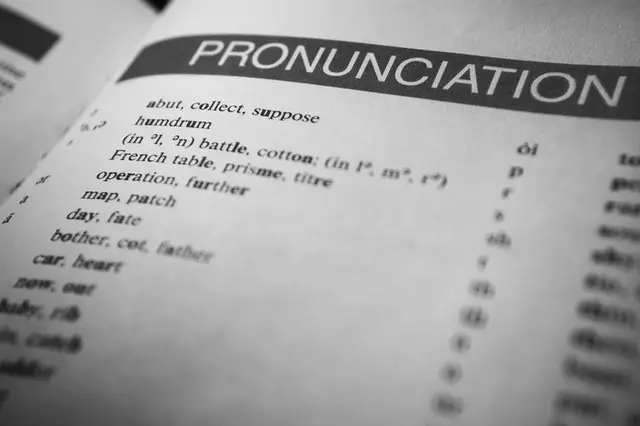
WHAT IS A BILINGUAL IMPERATIVE (BBB) POSITION?
Canada has two official languages: English and French. This means many public sector jobs in federal departments, agencies, and Crown Corporations are bilingual imperative at the BBB level, requiring at least intermediate proficiency in reading, writing, and speaking.
Manager and director-level positions require a minimum BBB, while some require at least a CBC level. Either way, not having the requisite certifications is a significant career barrier. However, many opportunities open up in the public sector for individuals who can speak proficiency in both official languages.
While learning any language can be a challenge, it is also a great gift to give yourself. With LRDG’s instructors helping you to pass a SLE (Second Language Evaluation), you will be able to apply to bilingual imperative jobs before you know it!
But what does “bilingual imperative” mean? What is “English Essential” or “French Essential”? Our instructors explain below.
LANGUAGE REQUIREMENTS FOR JOBS
Public service positions across Canada require a certain knowledge of English, French, or both languages. Hiring managers set the language requirements, which are determined based on the position’s responsibilities and duties.
Proficiency levels for reading, writing, and speaking both official languages are:
- Level A — Beginner
- Level B — Intermediate
- Level C — Advanced
Certain positions requiring expert proficiency can require a Code P, which means specialized proficiency is required.
BBB Canada language requirements indicate an intermediate proficiency level is required in reading, writing, and speaking. Linguistic profiles can be interpreted by the order they appear. For example, a job description with CBC levels means:
| Reading | Writing | Oral | |
| French | C | B | C |
| English | C | B | C |
A BBB/BBB profile means a person whose first official language is English must also possess BBB French levels, or vice versa. Likewise, a CBC/CBC profile means a person whose first official language is French must possess the English CBC levels; a person whose first official language is English must possess the French CBC levels.
Bilingual Imperative & Bilingual Non-Imperative Positions
A bilingual imperative position requires candidates to meet the hiring criteria when applying. For example, if a job description prescribes a CBC linguistic profile for a role, candidates are expected to either possess a valid CBC profile or higher or be able to pass new SLE tests to achieve the results.
SLE test results are typically valid for five years.
If you come across a job posting for a bilingual non-imperative appointment, candidates can apply if they agree to become bilingual using language training programs provided by the government.
Bilingual non-imperative jobs allow candidates to be hired with a two-year grace period to train and study their second language. For non-imperative roles, it is vital for hiring managers and candidates to have professional language-learning resources, tutoring accessibility and success management to ensure linguistic profile compliance is met within these strict deadlines.
What Does ‘English Essential’ & ‘French Essential’ Mean?
A job description may say the following: English Essential or French Essential, Bilingual Imperative BBB. This indicates fluency in the specified language is imperative, and a hiring manager will only consider candidates who are either English-speaking, French-speaking, or bilingual at the BBB level.
Apply For Language Training To Become Bilingual
Whether your first language is English, French, or something else entirely, LRDG can help you speak English or French fluently with our comprehensive courses.
We have programs designed for ESL (English as a Second Language) and FSL (French as a Second Language) that over 50,000 public service employees have used. Full-time or part-time language students can take LRDG’s programs at all levels.
Maintaining Language Fluency Is a Lifelong Journey
It’s important to remember that government language certifications are only good for five years. This means that even after you’ve achieved your levels, you’ll eventually need to be retested and retrained.
Maintenance training will make language certification renewals much easier, saving you time and money in the long run. If you want to maintain your language fluency, LRDG has programs for that, too! Linguistic maintenance is easier with LRDG!
Contact us for more information about our programs and testing methods!
Frequently Asked Questions (FAQs)
What is imperative staffing of bilingual positions?
Imperative staffing in the Government of Canada mandates candidates for certain positions to be fluent in both official languages, English and French, at the time of hiring to ensure bilingual service delivery as per the Official Languages Act.
What does BBB/BBB language mean?
When a job description has duplicate linguistic profile levels back-to-back, such as BBB/BBB or CBC/CBC, this indicates the level a candidate’s second language proficiency must be at. For BBB/BBB, this means someone who is fluent in English must hold a BBB level in French, or vice versa.
What is a non-imperative position?
Non-imperative staffing allows non-bilingual job candidates to remain eligible in the hiring process, provided they obtain a qualifying linguistic profile within two years.
Sign up for tips to help you learn, pass your PSC tests and achieve your levels.
Get inspiration to keep you motivated!
"*" indicates required fields


